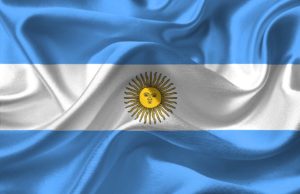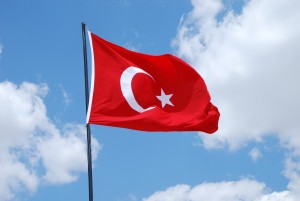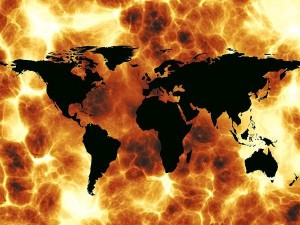Okay, so Argentina elected a neoliberal president. He went to deep austerity, removed capital controls, and sought an IMF bailout.
Argentina’s problems have a long history, but it’s worth remembering this: Before WWII, it was a first world country, with a standard of living about equal to Canada’s.
Argentina partially defaulted in 2001. We should remember that that default was caused by following the conservative policy of pegging the Peso to the dollar, which any moron should have known would eventually backfire.
It is also worth remembering that, when Argentina defaulted in 2001, it wasn’t actually allowed to. American courts wouldn’t let Argentina pay the creditors who allowed their debt to be reduced unless they also paid those debtors who didn’t take the deal.
 We live in a stupid, perverse world where people don’t understand that there has to be a balance between debtors and creditors. Creditors are making a bet, and if they lend to the wrong entity, and that entity eventually can’t pay back the debt, they should have to eat their losses. Don’t lend to people who can’t pay you back. Everyone knew that Argentina was going to have debt problems, every time, but they took the chance because they wanted high returns.
We live in a stupid, perverse world where people don’t understand that there has to be a balance between debtors and creditors. Creditors are making a bet, and if they lend to the wrong entity, and that entity eventually can’t pay back the debt, they should have to eat their losses. Don’t lend to people who can’t pay you back. Everyone knew that Argentina was going to have debt problems, every time, but they took the chance because they wanted high returns.
But the central financial system, the NY and London courts, and the IMF act as debt collectors for people who want the upside of high payments from distressed borrowers without the downside of possibly losing the money.
Worse, they act as enforcers for bad actors, who won’t cut deals, and expect to litigate.
Debtors may lose some money, but leg-breaking countries for rich debtors kills and impoverishes poor people.
Now, none of this is to say Argentina hasn’t made mistakes. Flipping back and forth between neoliberals and socialists is stupid. Pick one, and suck it up. Electing Macri was stupid, but then being outraged when he does what a neoliberal technocrat would do (i.e., austerity and sucking up to the IMF) is equally stupid.
Pick a governing philosophy and elect governments that adhere to that philosophy until the leading parties all follow it (like when Labour became neoliberal under Blair, cementing Thatcher’s victory).
Right now, Argentina is getting the worst of both worlds.
The results of the work I do, like this article, are free, but food isn’t, so if you value my work, please DONATE or SUBSCRIBE.

 Turkey has NATO’s second largest army.
Turkey has NATO’s second largest army. People like Pinker have been trotting out stats to claim that we’ve never been better off. Those stats are questionable, based on a definition of poverty that is beyond questionable. Meanwhile, in India, people eat less calories than they did 30 years ago. (I traveled in India and lived in Bangladesh 30 years or so ago. Eating less calories is unimaginably bad. That a small middle class and a new wealthy class has been created means little to those eating… less.)
People like Pinker have been trotting out stats to claim that we’ve never been better off. Those stats are questionable, based on a definition of poverty that is beyond questionable. Meanwhile, in India, people eat less calories than they did 30 years ago. (I traveled in India and lived in Bangladesh 30 years or so ago. Eating less calories is unimaginably bad. That a small middle class and a new wealthy class has been created means little to those eating… less.) Matt was one of the writers at BOPNews, in what seems like a long time ago now. He also wrote for MyDD for years. After that he, among other things, spent time on the Hill as a Congressional aide, to learn how politics and governance actually works.
Matt was one of the writers at BOPNews, in what seems like a long time ago now. He also wrote for MyDD for years. After that he, among other things, spent time on the Hill as a Congressional aide, to learn how politics and governance actually works.